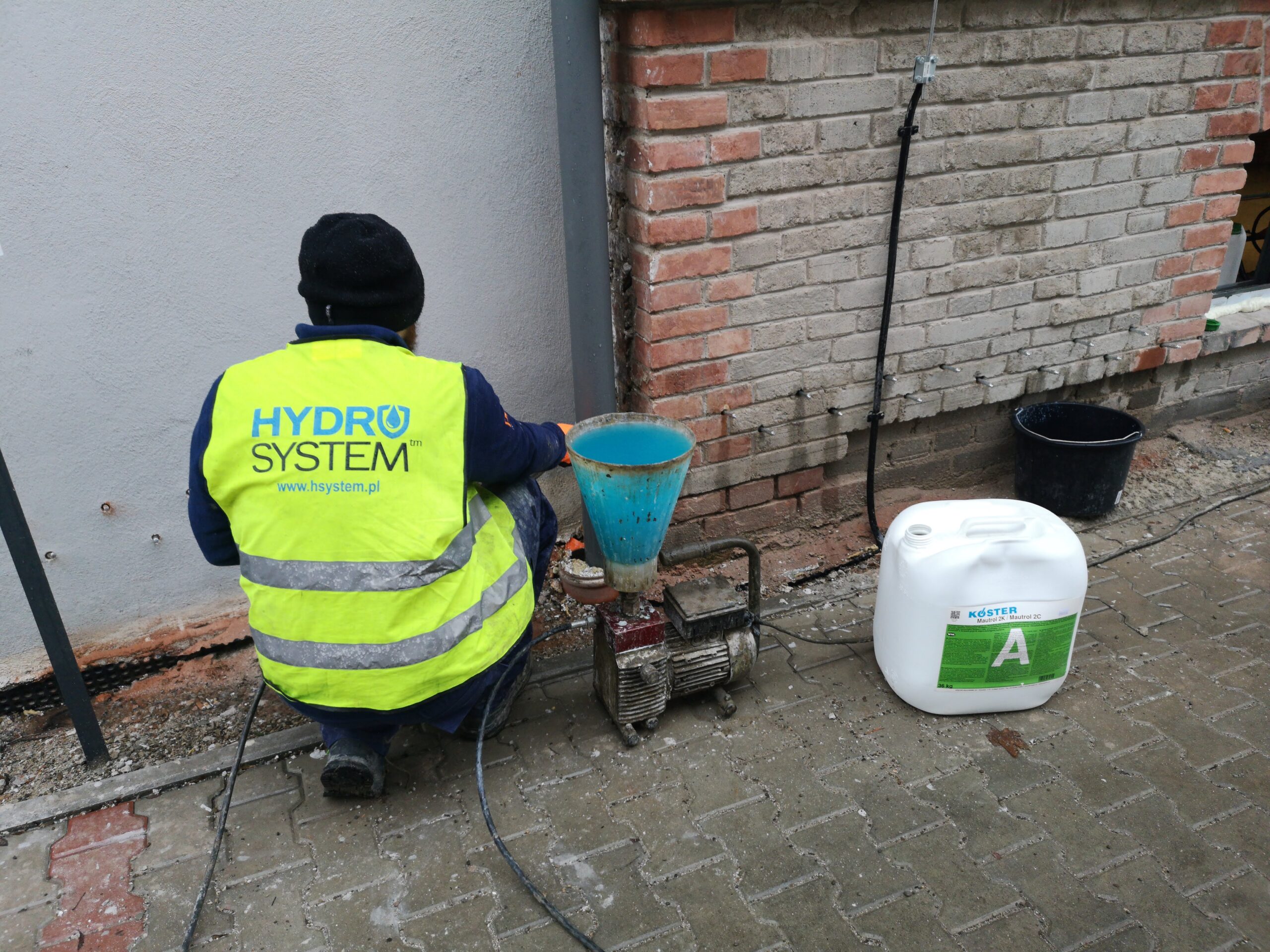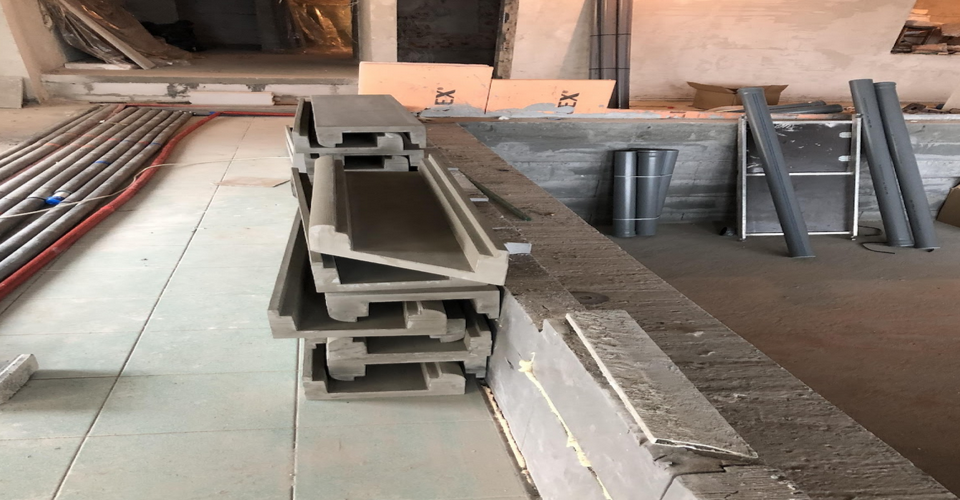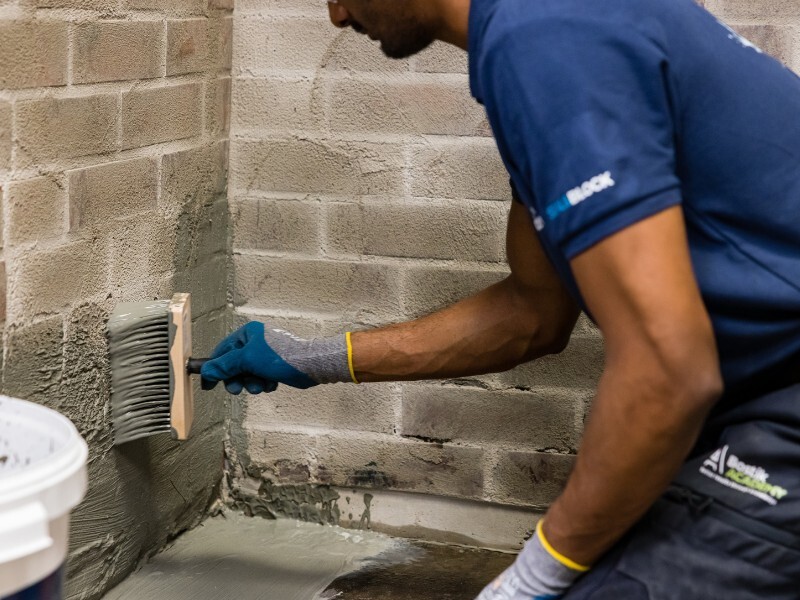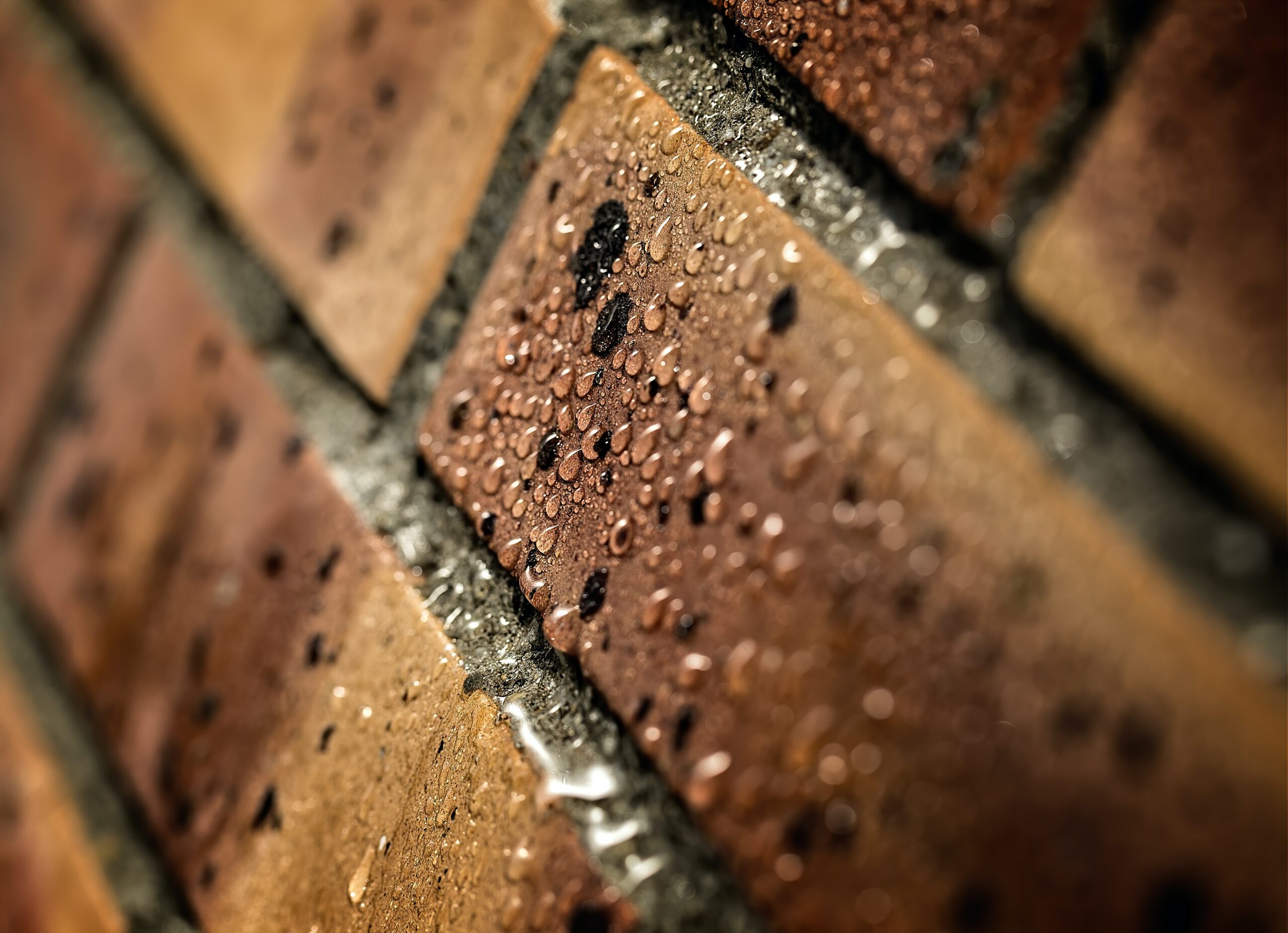
Capillary Rise
September 11, 2023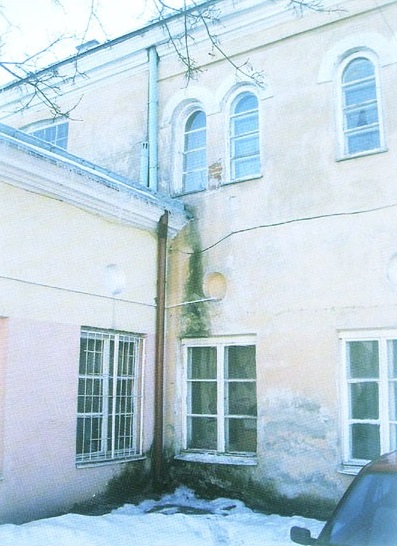
Efflorescence on Facades
September 15, 2023Injection
The waterproofing of underground parts of a building is one of the biggest challenges, particularly when external insulation is impossible or financially unfeasible. Excavating the foundations can involve significant costs, making it a less attractive option. On the other hand, internal insulation, while sometimes used, does not always meet investor expectations and may even lead to problems such as cracks in foundation walls or the foundation slab.
In such cases, the ideal solution is to apply specialized techniques, such as waterproofing underground parts of a building through injection.
Injection - In This Article, You’ll Learn:
- What is wall injection?
- Types of injection
- Gravity injection
- Pressure injection
- How to perform an injection?
- What do you need to perform an injection?
What Is Wall Injection?
In construction, injection is the process of introducing a specialized substance (known as an injection agent) into the building structure through prepared holes or channels. The purpose of injection is to address issues such as water leaks, moisture, structural damage, or to provide additional stability and strength to the building. Injection can be used in residential, industrial, and even historical buildings.
The selection of the appropriate type of injection agent must be precisely tailored to the characteristics of the structure and the materials it is made of. It is essential to rely on an experienced expert who understands the nuances of this type of work. In this field, SANIER offers comprehensive support and professional advice.
Types of Injection
There are various types of injection methods used in construction, including:
Gravity Injection
This method utilizes gravity and the capillary properties of materials to absorb the injection agent. The agent penetrates deep into the wall structure, sealing capillary pores that conduct water. Substances such as silicates, silanes, siloxanes, and siliconates are commonly used in this process. The primary goal of gravity injection is to restore a horizontal barrier that prevents moisture from being absorbed through capillaries.
What is gravity injection?
Gravity injection is an effective method for addressing issues with damp walls and floors often caused by inadequate or damaged waterproofing. This technique involves injecting a specialized mixture at a 30–45° angle into holes drilled into the wall. Through the combined effects of gravity and capillary action, the mixture deeply penetrates the structure of the wall.
Gravity injection not only resolves moisture problems but also restores both horizontal and vertical insulation. It is a reliable way to repair damage and provide long-term protection against moisture.
Pressure Injection
This technique involves injecting the agent into the wall structure using a pump and pre-drilled holes. Pressure injection can be categorized into several types:
Low-Pressure Injection (up to 0.4 MPa)
Used for injecting epoxy resins, polyurethane resins, cement-based slurries, micro-cements, and substances like silicates, silanes, siloxanes, and siliconates.
- Applications: Suitable for narrow cracks wider than 0.5 mm and walls thinner than 50 cm.
- Limitations: Ineffective for very narrow cracks (below 0.5 mm) and thick walls (over 50 cm).
Medium-Pressure Injection (up to 0.8 MPa) and High-Pressure Injection (above 0.8 MPa)
- Applications: Ideal for thick walls (over 50 cm), sealing water leaks under pressure, and large cracks wider than 1 mm.
Pressure injection is commonly used to restore horizontal and vertical waterproof barriers, including in historical structures. The key to this method is selecting the appropriate pressure, which significantly impacts the effectiveness of the injection process.
How to Perform an Injection?
When deciding to carry out an injection process, consulting an experienced specialist who understands all the nuances of such work is highly recommended. SANIER, a leader in waterproofing and injection techniques, can be a valuable partner in this endeavor.
Why Consult a Specialist?
SANIER provides comprehensive support, including:
- Choosing the Right Technology: Tailoring the method to the specific needs of your project.
- Material Selection: Helping select the most suitable injection materials for your building structure.
- Recommending Trusted Contractors: SANIER works with reliable injection professionals, ensuring the work is carried out efficiently and effectively.
Benefits of Choosing SANIER
By partnering with SANIER, you can be confident that:
- Your projects will be handled professionally.
- The chosen materials and methods will address the root causes of moisture and water-related issues.
- The recommended contractors have years of proven expertise and collaboration with SANIER.
Investing in expert guidance ensures that the injection process provides long-lasting protection and a durable solution to your building's waterproofing needs.
What do you need to perform an injection?
SANIER recommends the following materials for performing injection work:
- Repair Mortar:
- Waterproofing Slurry:
- Injection Agent (Injekt):
- Hole-Sealing Mortar:
- BOSTIK Bohrlochschlamme
- Koester Injektionsleim
- Kerakoll Geolite Magma
- Mapei Stabilcem
- Injection Funnel:
Need a Specific Product?
If you’re looking to purchase a product not currently available in our online store, contact us at (+48) 12 307 24 98 to place your order.
You can also visit our physical stores in Kraków at Adama Vetulaniego 5.
BOSTIK K11 Schlämme Grau
BOSTIK K11 Schlämme Grau is a single-component mineral mortar that creates a waterproof coating, providing protection against moisture, groundwater, and similar challenges.
BOSTIK Kiesey Horizontalstopp
Kiesey Horizontalstopp – Bostik is a silicate concentrate based on special silicates and hydrophobic additives.
KOESTER Injektionsleim 1K
KOESTER Iniektionsleim 1K is a high-quality injection grout with excellent final strength.
Do you want to learn more?
You can find detailed information about the waterproofing process in our guide:
Part 1 <- click and check
Part 2 <- click and check
We have a team of experts who will be happy to advise you. If you have any additional questions, feel free to call us at 533 343 595.







